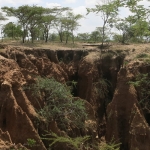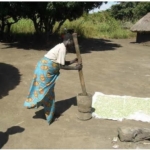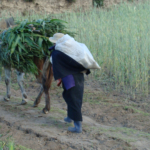


University of Eldoret
AIC Cheptebo, VI-Agroforestry
Kenya
12/2014—7/2016
The drylands of West Pokot, Elgeyo Marakwet and Baringo suffer degradation due to soil erosion. The erosion is as a result of biophysical as well as socioeconomic factors. While there have been a number of efforts at rehabilitation, these have been driven mostly by government/NGOs/researchers. These efforts have borne some fruit which in most areas seen to be short-lived. This initiative seeks to engage and interest farmers and communities living in these areas to come together and restore their landscapes. This will involve assisting farmers through capacity building to enable them form networks where their indigenous knowledge can be integrated with scientific information to provide sustained solutions to landscape degradation. It is envisaged that strong farmer research networks is key to not only restoring landscapes, but also bring in an aspect improved livelihoods, giving rise to multiplying the effect(s) across other landscapes.
To put the rehabilitation vision into perspective, the project has started to pilot the testing of Farmer Research Network (FRN) in West Pokot county in Chepareria ward involving two farmer group, (Korelach Parak and Kapkitony) living in one water catchment. The interest here is to see the small holder farmers managing soil erosion in their farms through the use of appropriate soil and water conservation structures that will lead to improvement in sustainable crop and animal production in the area. Thus, if every farmer can utilize conservation skills that will help to reduce the amount of water flowing downhill, then the creation of deep gullies and decline in agricultural productivity will be addressed. This will ensure that surface water will infiltrate to recharge underground water which with time will reduce the distance traveled in search of water for domestic use.
West Pokot, Baringo and Keiyo Marakwet counties contain large tracts of seriously degraded and non-productive lands. Households that live in these areas are caught up in a vicious cycle, exploiting the surrounding natural resources in unsustainable ways because they are unable to eke out a satisfactory living from their own farms. This project hopes to catalyze communities to develop lasting solutions to their perennial problems of food and nutritional insecurity; the aim is to restore degraded areas, utilizing ecological principles and practices, so that they become agriculturally productive. The PI of the proposed project is a soil physicist and university professor. He was the leader of the Kenya Farmer Research Network scoping team, which distinguished itself by its clear understanding of the core farmer research network ideas, aspirations and potential. He believes that using such an approach has great potential for engaging farmers in joint problem solving on high stake issues that are central to their lives. The overall vision for the work is to catalyze strategic research by challenging local communities to create integrated legume-cereal-livestock-agroforestry systems that restore ecosystem services and health, and provide superior food security, nutrition, and livelihoods for the people.




